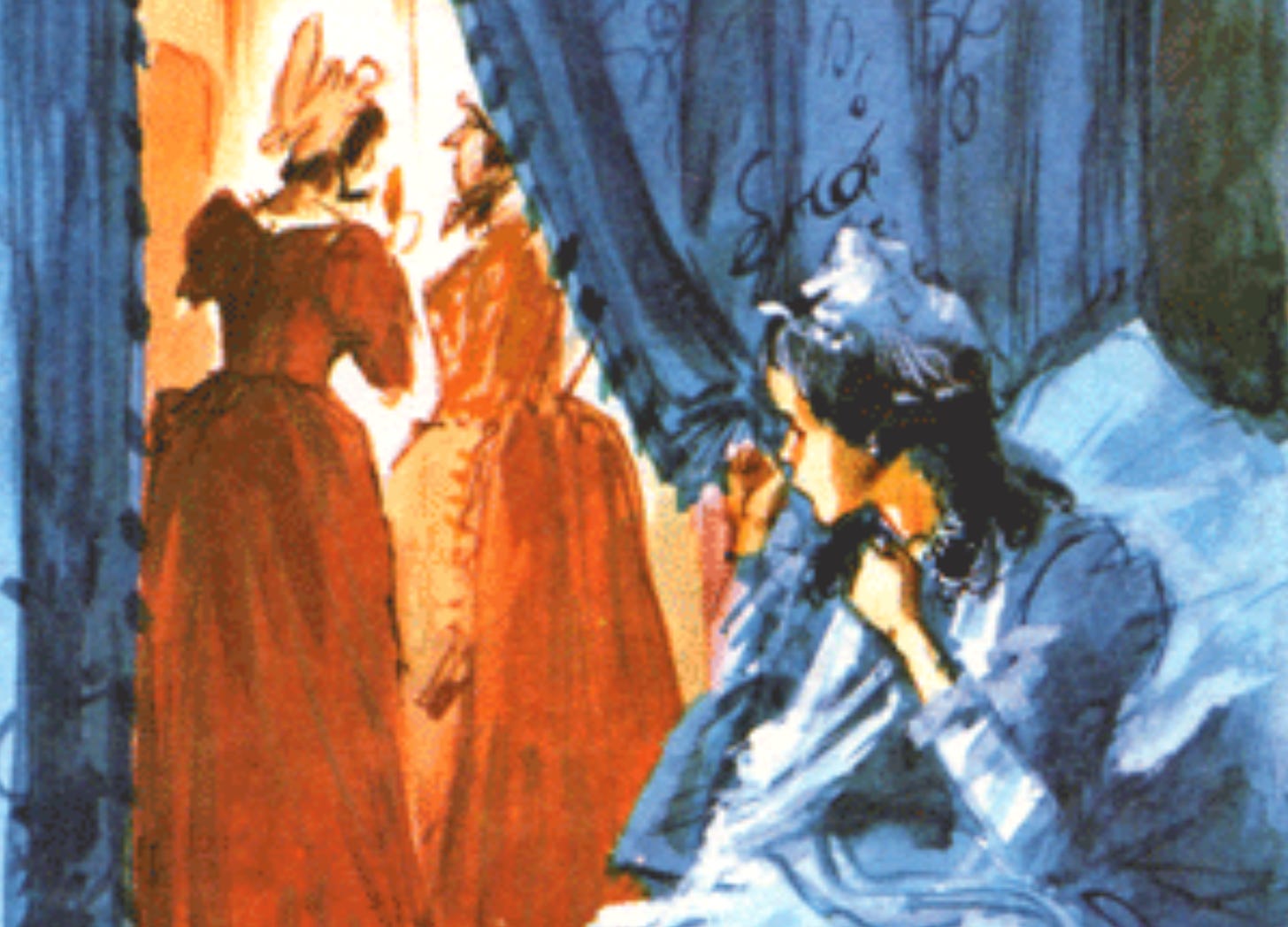Class and Charity: Jane Eyre Chapter 3
A Jane Eyre Readalong and Teachalong
Poverty looks grim to grown people; still more so to children: they have not much idea of industrious, working, respectable poverty; they think of the word only as connected with ragged clothes, scanty food, fireless grates, rude manners, and debasing vices: poverty for me was synonymous with degradation.
“No; I should not like to belong to poor people,” was my reply.
—Charlotte Brontë, Jane Eyre (Chapter 3)
As you read, consider the implications of this “Christian society” that Jane is in. James 1:27 says, “Religion that is pure and undefiled before God the Father is this: to visit orphans and widows in their affliction, and to keep oneself unstained from the world.” Jane’s parents died from typhus which they caught while “visiting the poor.” Now Jane herself is an orphan, but the care that she is receiving lacks genuine Christian charity.
Chapter 3 Questions
✢ Mrs. Reed calls for an apothecary (pharmacist) to treat Jane, while she would have called a real physician to treat her own children. What does this say about Mrs. Reed’s priorities?
✢ What is ten-year-old Jane’s perception of poverty? How does she weigh her life with the wealthy Reeds v. the potential to live with poorer relatives?
✢ Why does Jane say that she wants to go to school? What does she hope to experience at school?
✢ Why does Mrs. Reed hate Jane? Evaluate her rationale.
Teaching Tips
✢ Note the role of the supernatural (Jane overhearing Bessie’s/Sarah’s ghost story), birds (the special plate), and travel (Jane’s thoughts about Gulliver’s Travels). These are consistent themes/motifs in the book.
✢ Brontë wrote the “poor orphan child” song that Bessie sings. She intentionally weaves in both foreshadowing and thematic elements. While the production quality is not great, I like this arrangement of the song.
✢ Jane learns about her past. Jane’s mother was also stuck in between social classes. Born into wealth, she was disowned when she married a poor pastor. Jane’s situation in her family is in large part due to Mrs. Reed’s disapproval of her sister-in-law’s actions. More about Mrs. Reed’s motivation is revealed in Chapter 21. Teasing this out is helpful for students, who may not be familiar with class-based prejudice.
✢ Young Jane’s worry about poverty foreshadows her situation in Chapter 28. Her assumptions about her relatives foreshadows Chapter 32.
✢ Jane herself and others consistently comment on Jane’s looks throughout the book. Here, Jane overhears Abbott, “if she were a nice, pretty child, one might compassionate her forlornness; but one really cannot care for such a little toad as that.”



